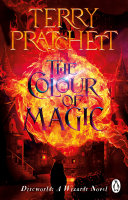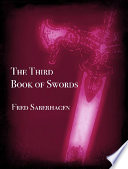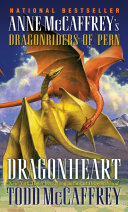Lose yourself in worlds of wonder and magic with the best Terry Pratchett books set on the Discworld and brush shoulders with unforgettable characters in these fantasy classics.
We have thoroughly enjoyed assembling a list of the best Terry Pratchett books for your consideration. Terry Pratchett’s mind created one of the most impressive and complex literary worlds, and exploring it is rewarding for any reader and fan of the fantasy genre.
For more fantasy recommendations, you might also enjoy exploring best fantasy authors, authors like Brandon Sanderson, authors like George R.R. Martin, or discover our comprehensive guide to best fantasy authors.
Table of Contents
Open Table of Contents
Top Terry Pratchett Books To Read
1. The Colour of Magic
The Discworld series can be read in any order, but the Colour of Magic is the introduction to the fantasy universe. Having arrived in Ankh-Morpork, the biggest city in Terry Pratchett’s world, the reader is introduced to the inept and cynical wizard Rincewind, who is hired as a guide to a naïve but rich tourist from a distant empire.
Rincewind is caught trying to swindle the tourist but is then forced to become his protector. More adventures and chaos ensue, setting the pace and familiarizing us with the Discworld, therefore serving as the perfect entry into Pratchett’s books.
Chapters in The Colour of Magic parody Fritz Leiber’s Swords series, but also the works of H.P. Lovecraft and Anne McCaffery’s series The Dragonriders of Pern.
Aside from its importance in the reading order, the humor of Colour of Magic will appeal even to readers who do not typically enjoy fantasy.
“On the Disc, the Gods aren’t so much worshipped, as they are blamed.”
Terry Pratchett, Colour of Magic
2. Guards! Guards!
Guards! Guards! introduces the City Watch of Ankh-Morpork and their whimsical leader, Samuel Vimes. City Watch is a sub-series of the Discworld series.
The plot reveals the machinations of a secret brotherhood keen on taking over the city by installing a puppet king. To achieve their evil goals, they seek to terrify the people and convince them to hand over power. The Watch, a band of misfits, sets out to stop them with some help from the Librarian of the Unseen University.
The book’s pun-filled, light-hearted approach to a corrupt city and potentially world-ending plot, not to mention its endearing characters, secure a place for it on our list.
“I believe you find life such a problem because you think there are good people and bad people. You’re wrong, of course. There are, always and only, the bad people, but some of them are on opposite sides.”
Terry Pratchett, Guards! Guards!
3. Night Watch
[Night Watch](https://www.amazon.com/Night-Watch-Terry-Pratchett-Kidby/dp/0552148997? tag=work089-20) is another book within the City Watch sub-series of Pratchett’s Discworld. The story follows the same Samuel Vimes, who is caught in a magical storm and sent back in time. He ends up posing as his own mentor and influencing his younger self, creating a classic time-traveling paradox.
The book is seen as taking a darker perspective than most of Pratchett’s works, tackling themes like power and morality and adding depth to his usually humor-centered chapters. All in all, Night Watchis a definite must-read.
“But here’s some advice, boy. Don’t put your trust in revolutions. They always come around again. That’s why they’re called revolutions.”
Terry Pratchett, Night Watch
4. Reaper Man
Reaper Man was written in 1991 and is the eleventh book in the Discworld series. The story follows Death, who is sent to live as a mortal man named Bill Door. Death’s absence from his normal role leads to the appearance of ghosts in the city of Ankh-Morpork, and a conflict ensues.
Humorous and witty, Reaper Manshows the full spectrum of Terry Pratchett’s skill as a master storyteller. Character-building is at the center of the book, the author being able to make us relate even to the personification of Death.
“It was the living who ignored the strange and wonderful because life was too full of the boring and mundane.”
Terry Pratchett, Reaper Man
5. Going Postal
Transformed into a mini-series in 2010, Going Postalis the 33rd book in Terry Pratchett’s Discworld series. The book introduces Moist von Lipwig, an imprisoned con artist who chooses to become the city’s Postmaster General to stave off execution.
Swamped by nonsensical red tape and bureaucratic conventions, he struggles to revive the Post Office and deal with its mountains of undelivered mail and quirky, often unhelpful staff, not to mention a chairman intent on sabotaging them.
Terry Pratchett is a master worldbuilder, giving each character, structure, or event he creates an undeniable, almost physical reality and Moist von Lipwig is one of the most beloved of his characters. Quirky and rich in biting social commentary, [Going Postal](https://www.amazon.com/dp/0060502932? tag=work089-20) is one of Terry Pratchett’s greatest literary accomplishments.
“Do you not know that a man is not dead while his name is still spoken?”
Terry Pratchett, Going Postal
6. The Truth
Just as the world borne on top of a turtle’s back needs a post office, it also needs a newspaper. In The Truth, published in 2000, the reader witnesses the birth of the first newspaper in Ankh-Morpork, the*Ankh-Morpork Times**, led by pioneering journalists William de Worde and Sacharissa Cripslock.
Writing about journalism was rather personal for Pratchett, as he left school at seventeen to become a journalist and continued to write his first books in his spare time. Throughout the book, Pratchett plays with the term “Water Gate,” referencing the Watergate scandal of 1972.
The story, which also features the Ankh-Morpork City Watch, is, in reality, a fantastical cover for one of Pratchett’s most biting critiques of the real world and makes for a thought-provoking read.
“In short, what people think they want is news, but what they really crave is olds.”
Terry Pratchett, The Truth
7. Men at Arms
Another book part of the City Watch sub-series, Men at Arms tells the story of Edward d’Eath, an Assassin and dispossessed noble who tries to restore the monarchy in Ankh-Morpork.
Meanwhile, Captain Samuel Vimes of the City Watch, preparing for his wedding to Sybil Ramkin, navigates the fallout of the conspiracy with his diverse new recruits. Men at Armsoffers the reader a take on the issue of diversity, all through the universe of the Discworld series.
“Cats will amusingly tolerate humans only until someone comes up with a tin opener that can be operated with a paw.”
Terry Pratchett, Men at Arms
8. Small Gods
Small Gods tells the origin of the god Om and that of the prophet Brutha, who meet the small gods, beings who yearn to be worshipped in order to be powerful again. After meeting them, Om comes to terms with his own mortality and is awoken to the importance of his followers.
Small Gods is a critique of religion, told with Terry Pratchett’s unmistakable humor, and Omniamism resembles actual monotheistic religions like Christianity and Islam.
“He says gods like to see an atheist around. Gives them something to aim at.”
Terry Pratchett, Small Gods
9. Good Omens
Although not part of the Discworld series, [Good Omens](https://www.amazon.com/dp/0060853980? tag=work089-20) has amassed quite a following and is now a popular TV show as well. The action revolves around an impending Judgment Day and an unlikely demon-angel pair.
Despite being polar opposites in more than one way, the two share a fondness for humans and their lifestyle, which they’ve adopted during the millennia spent among them, so they decide to stop the Apocalypse. The first task on their list is finding the son of Satan.
The book is a thought-provoking take on the nature of good and evil, with lovable characters peppered through an unlikely adventure. Its TV success further demonstrates its popularity. However, with Pratchett’s skill as a wordsmith, we recommend you read the book first and use your imagination to ‘see the story.’
“Most books on witchcraft will tell you that witches work naked. This is because most books on witchcraft are written by men.”
Terry Pratchett, Good Omens
10. Mort
Another Discworld novel, Mort, written in 1987, is the first to focus on Death, who only appeared as a supporting character in previous novels.
The story introduces Mortimer, or Mort, a clumsy, awkward young man who serves as the apprentice of Death, a skeletal figure who guides souls to the afterlife. Excited at first, the young apprentice slowly learns that Death’s job has untold degrees of complexity.
Nevertheless, taking pity on a princess who was meant to die, Mort saves her and ends up tearing the fabric of reality. What ensues is a series of comical and unpredictable events as Mort struggles to deal with his decision and comprehend the nature of humanity and mortality.
Death, meanwhile, explores what it means to be human, engaging in normal human activities and experiencing emotions. Side by side, the two plots are a treat for any reader.
“He was determined to discover the underlying logic behind the universe. Which was going to be hard, because there wasn’t one.”
Terry Pratchett, Mort
11. Wyrd Sisters
Wyrd Sisters, published in 1988, is inspired by Shakespeare’s monumental playMacbethand contains numerous references to it and other Shakespearian works.
The story revolves around the three Lancre witches, namely Granny Weatherwax, Nanny Ogg, and Magrat Garlick, who engage in intrigue in connection to the throne.
With his usual wit and satire, and making skillful use of political intrigue, Pratchett tackles themes of power, vengeance, and destiny. The book was turned into a TV miniseries in 1997.
“Gods prefer simple, vicious games, where you Do Not Achieve Transcendence but Go Straight To Oblivion.”
Terry Pratchett, Wyrd Sisters
12. Monstrous Regiment
A standalone Discworld novel, Pratchett’s Monstrous Regiment tackles issues of gender. It introduces Polly Perks, who sets out disguised as a man in the male-dominated army in search of her brother.
War and gender roles are explored with the author’s signature humor and biting commentary. And, as would be expected, there is more than a sprinkling of unusual characters to spice up the plot, including a vampire, a troll, and an Igor.
Like many other of Terry Pratchett’s works, Monstrous Regimentis a thought-provoking, albeit comedic read.
“The enemy isn’t men, or women, it’s bloody stupid people and no one has the right to be stupid.”
Terry Pratchett, Monstrous Regiment
13. Hogfather
Hogfather is a Yuletide classic among the Discworld books. The disappearance of the Hogfather, the universe’s equivalent to Santa Claus, forces Death to take his place while his granddaughter investigates. As expected, the reversal of roles for Death leads to comical situations.
The novel explores beliefs and traditions with Terry Pratchett’s favorite literary tool, exquisite humor, making it a perfect read for the holiday season.
“Real stupidity beats artificial intelligence every time.”
Terry Pratchett, Hogfather
14. Interesting Times
Interesting Times, another Discworld novel, reacquaints the reader with the hapless wizard Rincewind. This time, he is involuntarily transported to the Agatean Empire, inspired by ancient China. There, the wizard becomes involved in a revolution against the oppressive regime, with the ensuing events taking obvious inspiration from reality.
The story satirizes political uprisings, ancient traditions, and the very concept of ‘interesting times’ as a curse.
“The Art of War was the ultimate basis of diplomacy in the Empire.”
Terry Pratchett, Interesting Times
15. Thief of Time
Also part of the Discworld series, Thief of Time centers around the construction of the world’s first truly accurate clock, which has the potential to stop time itself.
The main characters, a diverse band of adventurers, which include Death’s granddaughter, set out to stop the bureaucratic Auditors of Reality from imprisoning the personification of Time in order to imbue the universe with predictability.
The book is known for the quintessential elements of Pratchett’s style: thought-provoking content, clever narrative structure, and engaging characters.
“You should always wear clean underwear because you never know if you will be knocked down by a cart.”
Terry Pratchett, Thief of Time
Frequently Asked Questions About Terry Pratchett Books
In what order should I read Terry Pratchett books?
The Discworld series can be read in publication order or by following the sub-series that focus on specific characters or themes, such as the City Watch, Death, the Witches, or Rincewind. Many readers start with The Colour of Magic, but you can also begin with the first book of any sub-series that interests you.
What is the most famous Terry Pratchett book?
Guards! Guards!, Mort, and The Colour of Magic are among Terry Pratchett’s most famous books. The Colour of Magic is especially well-known as the first Discworld novel, introducing readers to his unique fantasy universe.
What age group are Terry Pratchett books aimed at?
Most Discworld books are written for adults and young adults, but they are enjoyed by readers of all ages. Some titles, like the Tiffany Aching sub-series, are especially suitable for younger readers (ages 10 and up), while others contain more mature themes and satire.
What is Terry Pratchett famous for?
Terry Pratchett is famous for his Discworld series, which blends fantasy, satire, and social commentary. He is celebrated for his wit, imaginative worldbuilding, and ability to tackle complex topics with humor and insight.





